Indicator 14
An unduplicated, hierarchical count of the activities in which youth are engaged one year after exiting their postsecondary education placement. Indicator 14 helps us describe further education and competitive employment experiences of youth with disabilities as they transition from high school to adult life.

Defining Indicator 14
Indicator 14 of the State Performance Plan (SPP) requires states report an unduplicated count of the:
“Percent of youth who are no longer in secondary school, had IEPs in effect at the time they left school, and were:
A. Enrolled in higher education within one year of leaving high school.
B. Enrolled in higher education or competitively employed within one year of leaving high school.
C. Enrolled in higher education or in some other postsecondary education or training; or competitively employed or in some other employment within one year of leaving high school” (20 USC 1416(a)(3)(B))
Indicator 14 Categories
Higher education: 4-year college or university, 2-year college or community college, or a technical college (2-year degree) program.
Other postsecondary education: High school completion degree, vocational school, apprenticeship or short-term training program, on-the-job training program, Job Corps, adult education, vocational/technical school (less than a two year program), Vista, Peace Corps, AmeriCorps, compensatory education, other programs.
Competitive employment: 90 days of cumulative or consecutive work at minimum wage or greater and an average of 20 hours per week or more in a setting with others who are non-disabled; includes military, supported employment, self-employment or a family business if criteria of competitive employment are met.
Other employment: Work for pay or self-employment for a period of at least 90 days at any time in the year since leaving high school; includes sheltered employment, volunteer, self-employment, work out of one’s home, farming, others if competitive employment criteria are not fully met.
Indicator 14 – Post School Outcomes Interactive Map

Linked are a series of maps showing the five major outcomes for youth based on the 2025 Indicator 14 Post School Outcomes Survey. The data is based on an unduplicated count of successfully completed interviews, meaning respondents are counted in only one category, and in the highest category listed in the following order: Higher Education, Competitive Employment, Other Postsecondary Education or Training, Other Employment, and Not Meeting Indicator 14 Participation Criteria. Each outcome is aggregated by school district (LEA) and by county. Maps are interactive.
The Indicator 14 Survey
Data for this indicator is collected through the Indicator 14 Survey. To learn more about the Indicator 14 Survey or how to participate, please visit the Indicator 14 website. You can also email or call Jenny Jacobs at jjacobs@cesa7.org or (920) 617-5630.


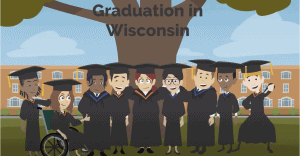

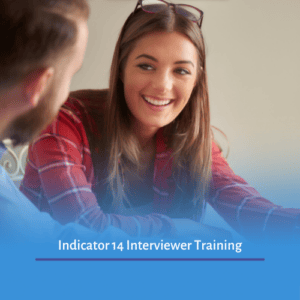
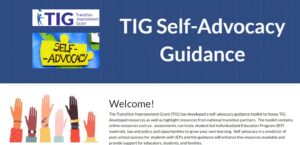 TIG Self-Advocacy Guidance Google Site
TIG Self-Advocacy Guidance Google Site 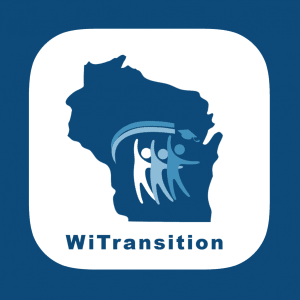
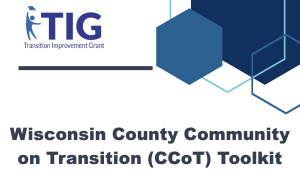 Wisconsin County Community on Transition (CCoT) Toolkit
Wisconsin County Community on Transition (CCoT) Toolkit